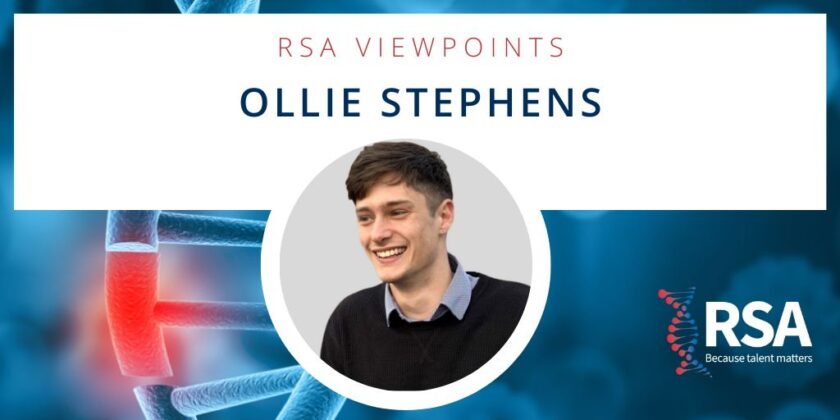Harnessing talent to realise the potential of cannabinoids and psychedelics
By Ollie Stephens
Rising from taboo to treatment, pharma companies are testing cannabinoids and psychedelic molecules for an increasing range of indications. The results could provide new treatments for painful diseases that are currently difficult to treat. For example, cannabinoids such as THC, CBD and CBG, have been shown to be beneficial for patients with chemotherapy-induced nausea, epilepsy, pain and loss of appetite from HIV. Psychedelics, such as psilocybin and LSD, have demonstrated significant benefits for patients suffering from anxiety, depression, addiction and PTSD.
Promising developments
With the potential to revolutionise mental health treatment, investment in the psychedelics field is increasing, leading to a number of recent advances. For example, a small study has demonstrated that a dose of potent psychedelic ibogaine can drastically improve the cognitive and psychological problems of military veterans.
AI has significant potential to speed up the process of identifying beneficial molecules. Already, researchers have used AlphaFold, a protein-structure-prediction tool, to identify hundreds of thousands of possible psychedelics. Its predictions could aid drug discovery, helping to develop antidepressants with novel mechanisms of action.
Cannabinoid research is also advancing, with the cannabis plant containing hundreds of chemical compounds, of which at least 100 are not found anywhere else. New developments include the findings of a recent study that suggests cannabinoid-derived compounds can work as anticancer agents against melanoma cells. There is also a trial underway of a cannabinoid-based drug for brain tumours, to help extend the lives of people living with recurrent glioblastoma. A number of companies have been working on synthesising cannabinoids in bioreactors, as opposed to cultivating cannabis plants. Using this method yields both larger quantities of cannabinoids while offering a lower environmental footprint.
Unique talent
In these emerging and ever evolving fields, finding the right talent is crucial to successful clinical development. Compassion for patients is an important trait, and many people working in these fields have been affected by the difficult diseases cannabinoids and psychedelics could treat – particularly increasingly prevalent mental health issues. These dynamic fields require creative solutions to emerging problems and an interest in the changing landscape of neuroscience.
Since the adoption of cannabinoids and psychedelics by pharma is relatively new, and these drugs can often face stigma, roles in these industries are best suited to candidates who enjoy a challenge. They may need to work long, hard hours and go above and beyond their standard responsibilities. However, the results can be incredibly rewarding.
Many skills required to work in the psychedelics and cannabinoids fields are transferable from other therapeutic areas. For instance, exposure to the regulatory bodies during the drug development process will help with understanding regulatory nuances. The ability to engage a range of stakeholders will enable candidates to successfully communicate with regulatory authorities and governments.
Having start-up experience, as well as being a self-starter and quick learner, will enable candidates to collaborate well across disciplines and departments. As companies move from research to commercialisation, agility and flexibility will be essential. In the near future, top level sales and marketing talent will be necessary to achieving successful commercial portfolios once products have been approved by regulators.
Emerging roles
There are a wide range of roles emerging within the psychedelics and cannabinoids fields, and these will evolve over time as the areas progress. Research scientists are needed to discover the compounds, and executives are required to bring them to market. CDMOs and CROs will provide an additional skillset, as well as advanced technology to accelerate drug development. New roles will develop as medicines move to commercialisation and beyond, such as those in sales and marketing. For psychedelics, psychotherapists will need to be trained to guide patients through the process of taking the medicine and using it to support psychotherapy.
Cannabinoids and psychedelics hold significant promise to transform the quality of life of patients with painful diseases that are difficult to treat. Talented and dedicated teams are needed to advance these traditionally taboo fields forward. At the RSA Group, we have a strong network of talent and connections with individuals who have the advantageous traits, skills and experience needed to succeed in psychedelics and cannabinoids fields.
Case study: Cybin
Roles in pharmacovigilance are important to monitor the safety of the new medicines. RSA recently placed Sylvie Pancheri, Head of Drug Safety & Pharmacovigilance at Cybin, a biopharmaceutical company on a mission to create safe and effective psychedelic-based therapeutics. Cybin were looking for a candidate who had training as a medical doctor and extended experience in global safety for big pharmaceutical and biotechnology companies, particularly for neurological indications.
Sylvie commented: “Mental disorders are often incredibly disabling for patients and harmful for their families. Very few psychiatric drugs have been launched in the past few decades. Psychedelics hold huge potential to treat chronic mental health conditions that current medicines cannot. Working in psychedelics to make new therapeutics available is very exciting. My current position is my dream role and was made possible by RSA’s expertise in bringing the right people together in science to foster innovation.”
Contact me directly to learn more: Ollie.Stephens@theRSAGroup.com